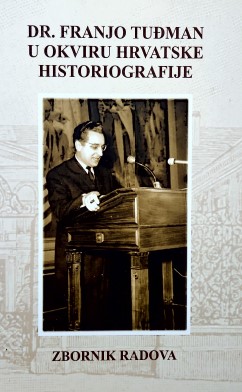STJEPAN RADIĆ U DJELIMA DR. FRANJE TUĐMANA
STJEPAN RADIĆ IN FRANJO TUĐMAN’S WRITINGS
Author(s): Hrvoje Čapo
Subject(s): Political history, Government/Political systems, Political behavior, 19th Century, Pre-WW I & WW I (1900 -1919), Interwar Period (1920 - 1939), Post-War period (1950 - 1989)
Published by: Hrvatski institut za povijest
Keywords: Stjepan Radić; Franjo Tuđman; historiography;
Summary/Abstract: Franjo Tuđman covered Stjepan Radić’s activities in most detail in the context of the history of the Kingdom of Serbs, Croats and Slovenes and in papers for the most part written in the 1960s. The papers basically approached their topics from the Croatian point of view and reconstructed the repressive system of Serbian centralist and hegemonist rule. It had been a novelty in historiography that introduced some new views on the matters in question, and his approach still holds its value today. Tuđman agreed with certain judgments about Radić that had already been made in historiography, but he also made a considerable headway in the understanding of his personality with his detailed study of Radić’s work. The detachment from the prevalent ideas of the time that saw the Croatian Peasants’ Party (HSS) as a party of landlords that had played its most important role in preventing clericalism among the peasantry, and that saw Radić as a naïve and opportunistic politician whose only concern was being in power, was certainly a considerable contribution on Tuđman’s part. Franjo Tuđman was particularly interested in the consistency of Radić’s fight for Croatian sovereignty, which had always rested on the idea about Croatia’s independence. Statehood options in Radić’s mind progressed from federalism to confederalism, depending on different political and historical contexts, but they had always been a part of the context of Slavic solidarity. In addition to their Pan-Slavism, Franjo Tuđman drew attention to two other important features of Radić and his HSS: the idea about a folk enlightenment movement with a broad basis in the peasantry, and the politics of peaceful resistance. Even though he felt some of Radić’s moves had been less than prudent, his overall judgment of Stjepan Radić was positive, mainly due to Radić’s commitment to Croatian sovereignty.
- Page Range: 145-164
- Page Count: 20
- Publication Year: 2011
- Language: Croatian
- Content File-PDF

